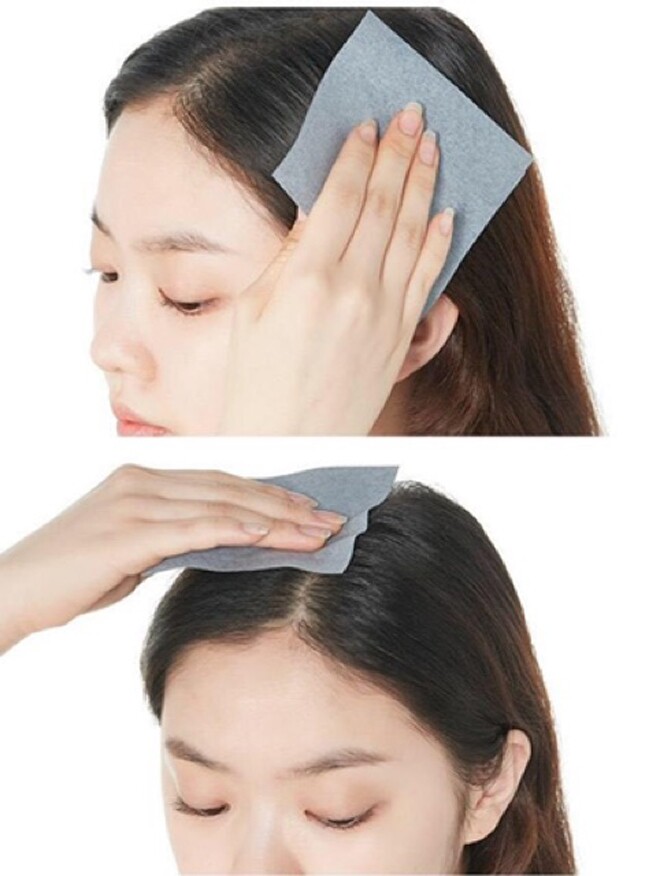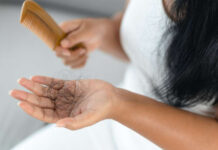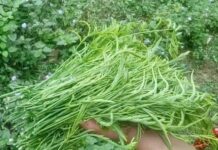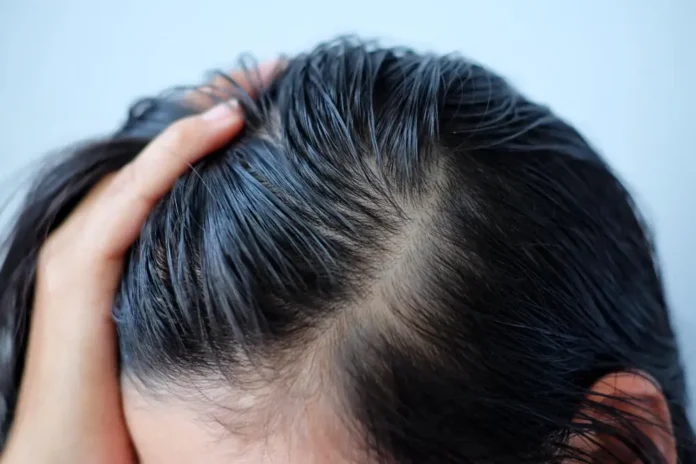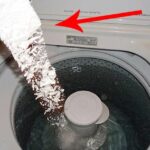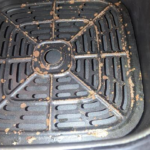Greasy, flat hair stuck to the scalp can be a challenge when it comes to styling. On top of that, using too many styling products can make the problem even worse. Nowadays, dry shampoo has become a go-to solution for many women to tackle oily hair. However, if you don’t have this handy product and want to avoid losing points for unkempt hair, remember these 5 quick fixes.

Greasy hair can be a serious blow to your appearance.
**1. Face Powder**
A great feature of face powders is their oil-absorbing capability. They can not only mattify your face but also reduce oiliness in your hair. Many women may not carry dry shampoo in their handbags, but they’re likely to have face powder with them.
Take some powder with a puff or a brush and lightly dab it onto your scalp, especially the oily areas. After applying, gently rub your hair to distribute the powder evenly, and say goodbye to greasy roots instantly.
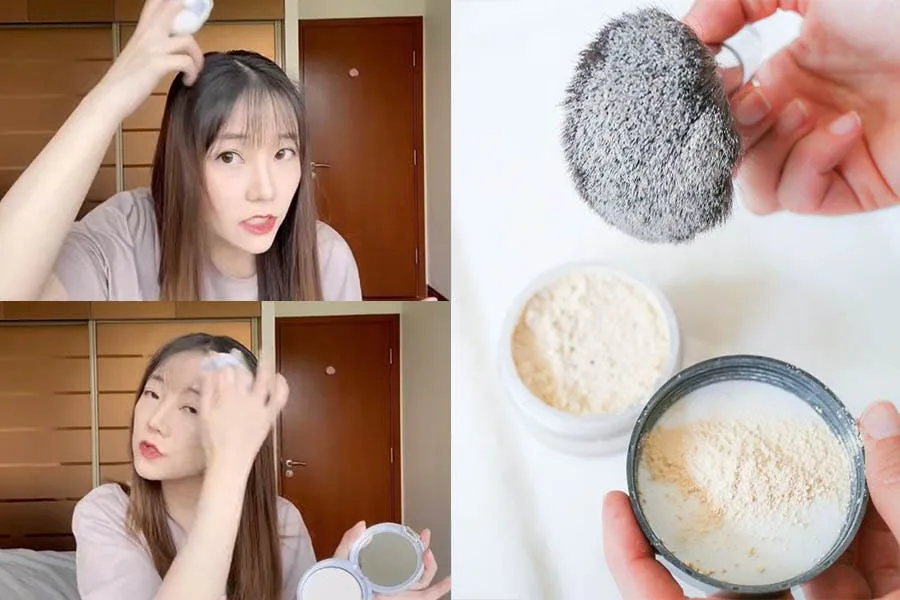
**2. Lemon Juice**
Lemon is something you can easily find in your kitchen. It helps neutralize and remove excess oil from your hair because scalp oil is alkaline, while lemon is acidic. At the same time, lemon provides the necessary vitamin C to nourish damaged hair.
To deal with greasy hair, mix ¼ cup of lemon juice with 2 cups of water and put the mixture into a spray bottle. Spray the diluted lemon juice onto your roots and let it air dry. If you have time, you can also use it as a hair mask for 35-40 minutes, 2-3 times a week.
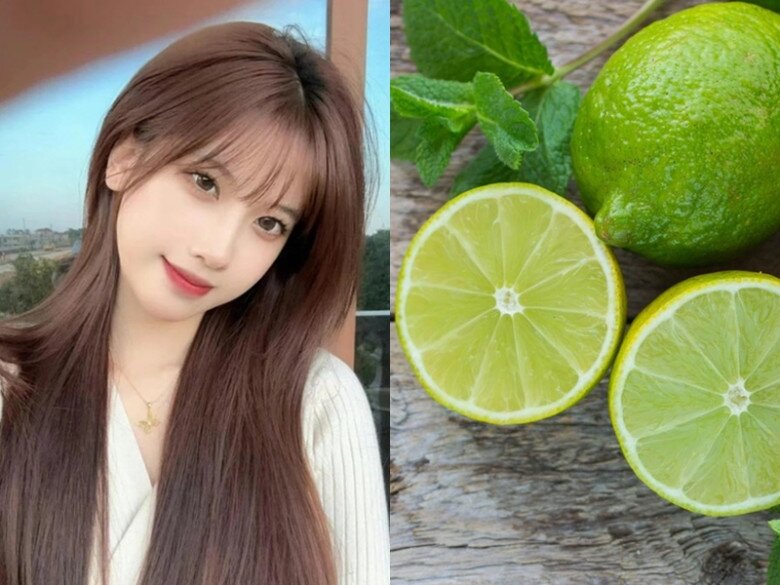
**3. Baking Soda**
Another ingredient that you can find in your kitchen to combat oily hair is baking soda. It can help remove excess oil and clean your hair more effectively than some expensive products.
Simply sprinkle a small amount of baking soda directly onto your hair or onto a brush and comb it through from root to tip. Wait for 2-3 minutes to allow the baking soda to absorb the excess oil. Then, use a clean brush to comb your hair and get rid of the baking soda along with the excess oil. This will leave your hair feeling clean and fresh.
Note that baking soda is highly alkaline and can strip your hair of its natural oils if used too frequently, so it’s best to use this method sparingly.
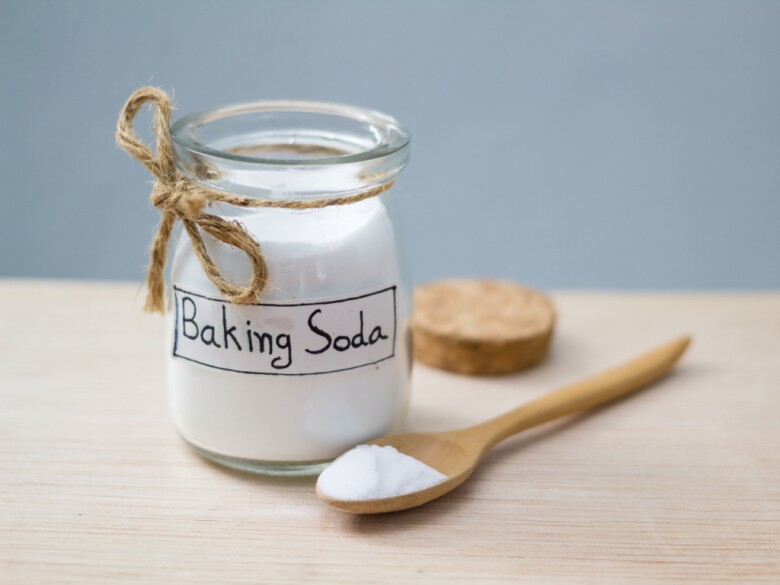
**4. Salt Water**
Salt can help clean and absorb excess oil from your scalp. However, applying salt directly to your hair can make it dry, brittle, and frizzy. The best way to use salt is to dilute it with water or combine it with other ingredients to create a hair cleansing mixture.
If you need a quick fix for your oily hair, dissolve a small amount of salt in water and put it in a spray bottle. Spray it onto your hair, gently massage your scalp for a few minutes, and then blow-dry your hair.
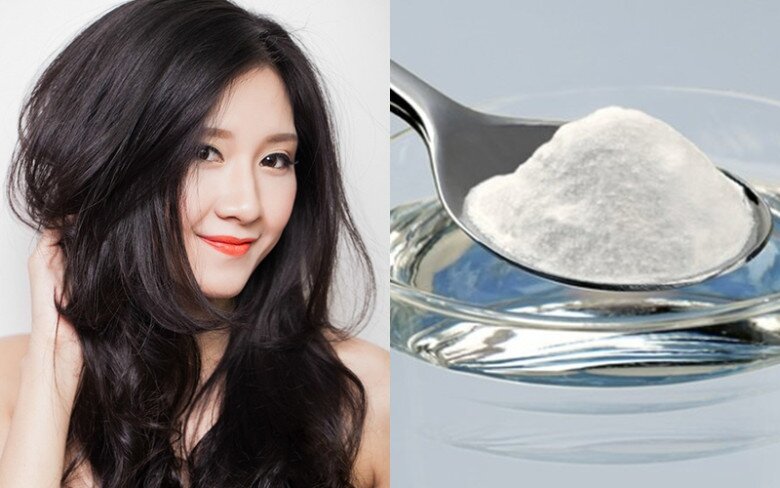
**5. Oil Blotting Paper**
Oil blotting paper is not just for your face; it can also help remove excess oil from your hair. This method is a temporary solution to reduce oiliness. Simply take a sheet of blotting paper and gently press it onto the oily parts of your hair to absorb the excess oil. Then, use a clean brush to comb your hair.
